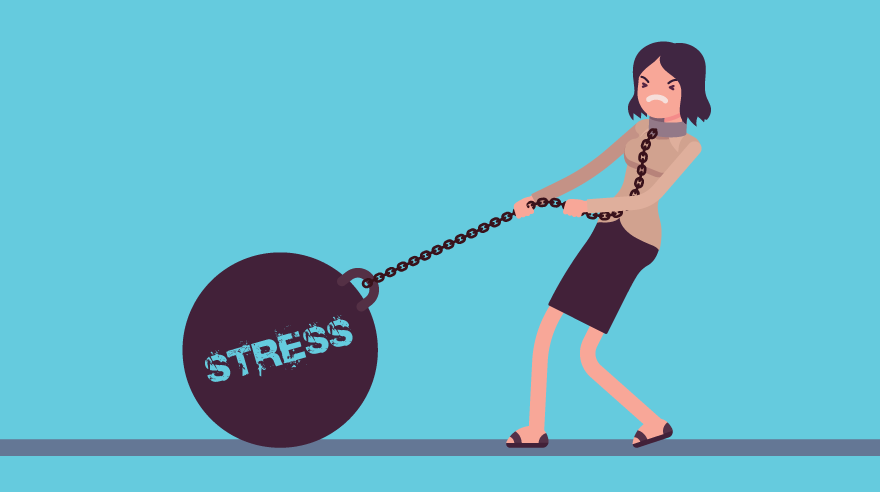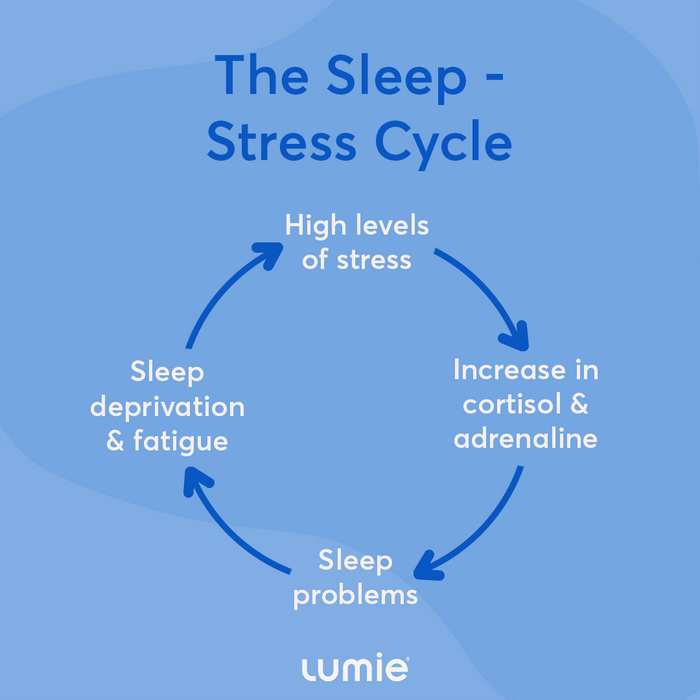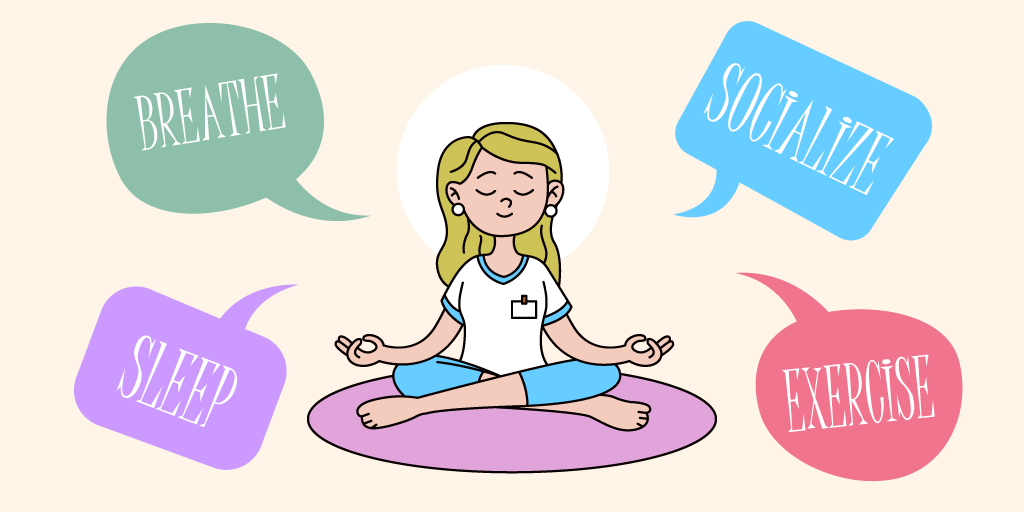
Stress is a universally experienced condition that can have both positive and negative consequences for a person's health. Long-term exposure to stress can lead to a variety of health problems, including heart disease, diabetes, depression, and anxiety. However, there are proven ways to prevent or reduce the effects of stress, especially through healthy eating and physical activity.
A healthy diet
A healthy diet is an important factor in combating stress. Food should be balanced, rich in essential nutrients such as complex carbohydrates, proteins, fats, vitamins and minerals. Complex carbohydrates, found in whole grains, vegetables, and fruits, help maintain stable blood sugar levels, thereby reducing stress-related tension. Omega-3 fatty acids found in fish like salmon and flaxseed can help reduce symptoms of depression and improve mood. Vitamins and minerals, especially B vitamins, magnesium and zinc, play an important role in stress management and nervous system health.
Physical activity
Physical activity is another essential component of stress reduction. Regular moderate-intensity exercise, such as brisk walking, swimming or cycling, can help reduce levels of stress hormones such as cortisol and adrenaline, while also stimulating the production of endorphins, the happy hormones that make us feel happy and help reduce pain. This is called the "happy hormone effect". Physical activity also improves the quality of sleep that can be disrupted due to stress, and helps restore personal energy balance, giving you more energy and improving your overall well-being.
Meditation
Meditation is one of the most effective ways to reduce stress and tension levels. It helps reduce obsessive thoughts and provides an opportunity to get away from everyday worries, promoting emotional peace and psychological relaxation. Meditation practice can take many forms, such as visual meditation, focusing on the breath, or movement meditation such as yoga. Practicing meditation regularly can lead to long-term stress reduction, improved focus and emotional well-being.
Deep breathing
Deep breathing techniques are a simple but powerful way to quickly reduce stress levels. Breathing is directly related to the nervous system, and slow, deep breathing can help slow your heart rate and lower your blood pressure, providing instant relaxation. Breathing exercises can be done anywhere and anytime when feeling stressed or tense.
Relaxation techniques
There are many relaxation techniques to reduce stress and improve well-being. A progressive muscle relaxation technique, in which each part of the body is consciously tensed and then released, can help identify and reduce physical tension.
Spending time with loved ones and hobbies
Social support is vital for individuals experiencing stress. Connecting with family and friends can provide emotional support, help relativize problems, and take your mind off of everyday stress. Hobbies and leisure activities that are enjoyable, help you relax and can act as an effective way to reduce stress. Those who devote time to the activities they enjoy are more likely to experience life satisfaction and less stress.
Quality rest
A good night's sleep is extremely important for maintaining good physical and emotional health and reducing the effects of stress. Lack of sleep can increase the feeling of stress and worsen its consequences. Therefore, it is important to establish a healthy sleep routine, including a regular sleep schedule, calming evening activities, and a comfortable, sleep-promoting environment.
In conclusion, a healthy diet and regular physical activity, along with other stress-reducing practices, can make a significant contribution to stress management. The most important thing is to create a balanced lifestyle that allows you to effectively deal with stress while maintaining good physical and psychological health.

The importance of sleep for emotional health and stress reduction
Sleep is vital for all aspects of health and well-being, including emotional health and stress management. It acts as a key restorative and regenerative process that allows the body and mind to recover from the day's accumulated physical and psychological stress. Research shows that quality sleep is associated with better mood, lower stress levels, and increased emotional stability, while lack of sleep or poor quality sleep can have a negative impact on mental health, increasing symptoms of anxiety and depression, and reducing stress tolerance.
One of the main functions of sleep is to strengthen emotional resilience. During sleep, the brain processes and organizes the day's events, emotions and memories, helping to reduce emotional stress and increase psychological resilience. The REM (Rapid Eye Movement) sleep phase, especially important for dreams, is associated with the processing of emotional information and can help reduce emotional reactions to stressful situations.
In addition, sleep helps regulate hormones such as cortisol (the so-called "stress hormone") and ghrelin (an appetite-stimulating hormone), imbalances of which can lead to increased feelings of stress and even contribute to weight gain. Sleep also stimulates the production of serotonin and dopamine, neurotransmitters that positively affect mood.
Sleep disorders, such as not being able to fall asleep (insomnia), waking up too often at night, or waking up too early in the morning, can cause or worsen psychological conditions, including depression, anxiety and stress. Long-term sleep deprivation is also associated with an increased risk of chronic diseases such as cardiovascular disease, diabetes and obesity, which in turn can further increase psychological stress.
In conclusion, sleep is inextricably linked to emotional health and stress management. Good quality sleep not only helps reduce psychological stress, but also improves overall health and well-being by giving the body the time it needs to recover and regenerate.
The importance of psychotherapy and when to seek help
Psychotherapy is a treatment method that helps people cope with emotional problems, psychological difficulties and psychiatric illnesses through discussions with a qualified professional. It is an important part of health care that helps restore or improve quality of life and emotional well-being. Psychotherapy can be used to treat a variety of conditions, including but not limited to depression, anxiety disorders, stress management, family or relationship problems, addictions, and behavioral disorders.
One of the main aspects of the importance of psychotherapy is its ability to provide a safe and supportive environment in which a person can express their feelings and thoughts related to various life challenges. It allows people to gain a deeper understanding of their emotional states, the causes of their behavior and the impact on their quality of life. A psychotherapist helps uncover root problems and teaches effective ways to cope with difficulties, promoting healthier behavior and decision-making.
You should contact a psychotherapist when it is noticeable that emotional states or psychological challenges interfere with everyday life, work, studies or relationships with other people. For example, if a person is experiencing high levels of stress that causes sleep disturbances, reduced performance, or even physical symptoms such as headaches or digestive problems, this may be a sign that professional help is needed.
It is important to understand that psychotherapy is not only the treatment of diseases - it is also a preventive measure that helps to strengthen personal psychological resilience against future challenges. The process of psychotherapy can be complex and time-consuming, but its effectiveness is proven through research and practice in helping people achieve long-term emotional and psychological well-being.

Information sources
- PubMed
- ScienceDirect
- World Health Organization (WHO)
- National Institute of Mental Health (NIMH)
# stresas
